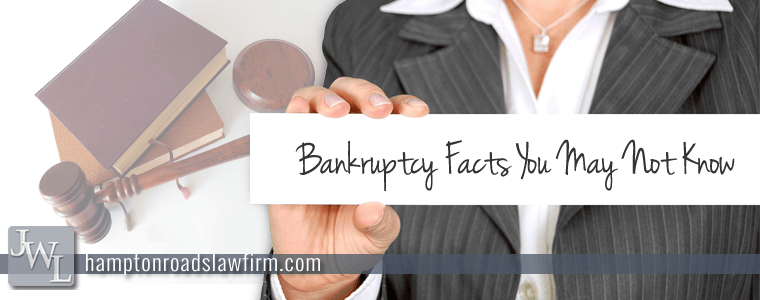When Filing a Chapter 7 Bankruptcy, the trustee can undo transactions made prior to filing the bankruptcy. For example, if you gave a portion of your tax refund to a friend or family member, even if you owed them money, the Trustee can go after that person to retrieve the money you gave to them prior to filing.
When filing a Chapter 7 bankruptcy, the trustee can take your assets and distribute them to your creditors. One asset they really like to take from Debtors is money in their bank accounts. The Trustee will ask to see your bank statement and if you had nonexempt funds in your bank account (even wages), then you will be required to turn them over to the Trustee.
When filing a Chapter 7 bankruptcy, it is usually necessary to file a Homestead Deed to protect your personal property like bank accounts, life insurance and tax refunds. However, in Virginia, the Homestead exemption is a once in a lifetime exemption, so if you used it up in a prior bankruptcy, you may not be able to protect your assets in a subsequent filing. The Chapter 7 trustee will ask to see Homestead Deeds filed in prior bankruptcies to ensure you have not used your lifetime exemption.
When filing a bankruptcy, you are required to list all of your assets including assets you have not yet received. If you have been injured in the last five years, and might be filing a personal injury claim, or may be expecting a settlement for an injury you must list that claim on your bankruptcy schedules. If you fail to list and exempt the claim, then when you receive it you may have to turn over the entire claim to the Chapter 7 Trustee for distribution to your creditors.
When filing bankruptcy, retirement plans such as 401K and I.R.A. are normally exempt (protected from the Trustee) up to fairly high amounts. However stocks, bonds, annuities, and mutual funds are not exempt and maybe taken by the Chapter 7 trustee. It is very important that you are absolutely certain the account you have is an ERISA qualified retirement plan, or it may be subject to administration by the Chapter 7 Trustee.
When filing a Bankruptcy, it is commonplace for a Chapter 7 Trustee to sell the debtor(s) home to raise money to pay to the creditors. Virginia’s Homestead Deed only allows a debtor to protect around $5,000.00, depending on the debtors’ age and dependants. If a debtor is (1) married, (2) owns the property Tenants-by-the-entirety, (3) and has no joint debts, then the property may be exempt. When using this exemption you have to make certain there are no joint debts or the property can be sold to pay off the joint creditors.
Filing bankruptcy without an attorney can easily lead to the loss of tax refunds, homes, automobiles and future personal injury claims. If you are considering filing a bankruptcy, you should consult with the experienced bankruptcy attorneys at John W. Lee, PC.
This May Be Considered Advertising Material.


